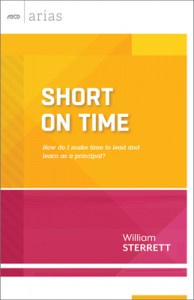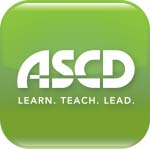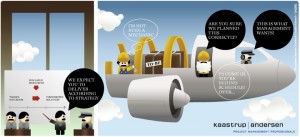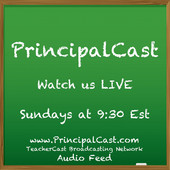 ASCD is venturing into a new market through their arias publications. These books are designed for the busy professional that can be read in less than an hour, but can provide resources for improvement well beyond the time spent reading. Short on Time: How do I make time to lead and learn as a principal? by Bill Sterrett was a great read! It took me about 38 minutes to read it. I found myself hooked from the beginning.
ASCD is venturing into a new market through their arias publications. These books are designed for the busy professional that can be read in less than an hour, but can provide resources for improvement well beyond the time spent reading. Short on Time: How do I make time to lead and learn as a principal? by Bill Sterrett was a great read! It took me about 38 minutes to read it. I found myself hooked from the beginning.
Short on Time will help you with the following:
– Help you take action and realize change in school and professional life
– Gain insights into specific steps that you can apply to your situation
– These action steps involve teaching, innovating, and leading which will require planning, action, and reflection
Sterrett developed a 4 point acronym DISC (District, Instruction, School, Community) to help educational leaders manage their professional schedule. Each of these areas require the educational leader to determine their own allocation of time, but all are important. According to Sterrett, all of the DISC activities should be placed in your master schedule, which should be accessible to key stakeholders.
- District – Any requirements from your central administration such as BOE meetings, presentations, or meetings
- Instruction – Referred to as the heart and soul of your job, these activities include walk-throughs, faculty meetings, school level meetings
- School – School activities can make the school the center of the community
- Community – These activities include developing and managing partnerships external from the school
 In addition to providing tips and resources for the educational leader’s own time, Sterrett spends a considerable time discussing the importance of maximizing instructional time for students and teachers. He suggests leaders develop a collaborative scheduling team to examine the master schedule to maximize time for collaboration, reflection, outdoor learning, and time for the whole child.
In addition to providing tips and resources for the educational leader’s own time, Sterrett spends a considerable time discussing the importance of maximizing instructional time for students and teachers. He suggests leaders develop a collaborative scheduling team to examine the master schedule to maximize time for collaboration, reflection, outdoor learning, and time for the whole child.
Sterrett posits that teachers should be provided time for their personalized and school-based learning. In order to use time effectively, leaders should provide time for teachers to improve instruction through meaningful faculty meetings, Professional Learning Communities (PLCs), peer observations, and collaboration.
 Understanding that we are all “short on time,” Bill Sterrett provides an amazing resource in this arias book for educators to maximize their time on what matters most. Once you read this book, you will see that becoming organized, communicating effectively, and prioritizing your day is not as hard as you might imagine. Although the book is titled “Short on Time” it is long on resources!
Understanding that we are all “short on time,” Bill Sterrett provides an amazing resource in this arias book for educators to maximize their time on what matters most. Once you read this book, you will see that becoming organized, communicating effectively, and prioritizing your day is not as hard as you might imagine. Although the book is titled “Short on Time” it is long on resources!






